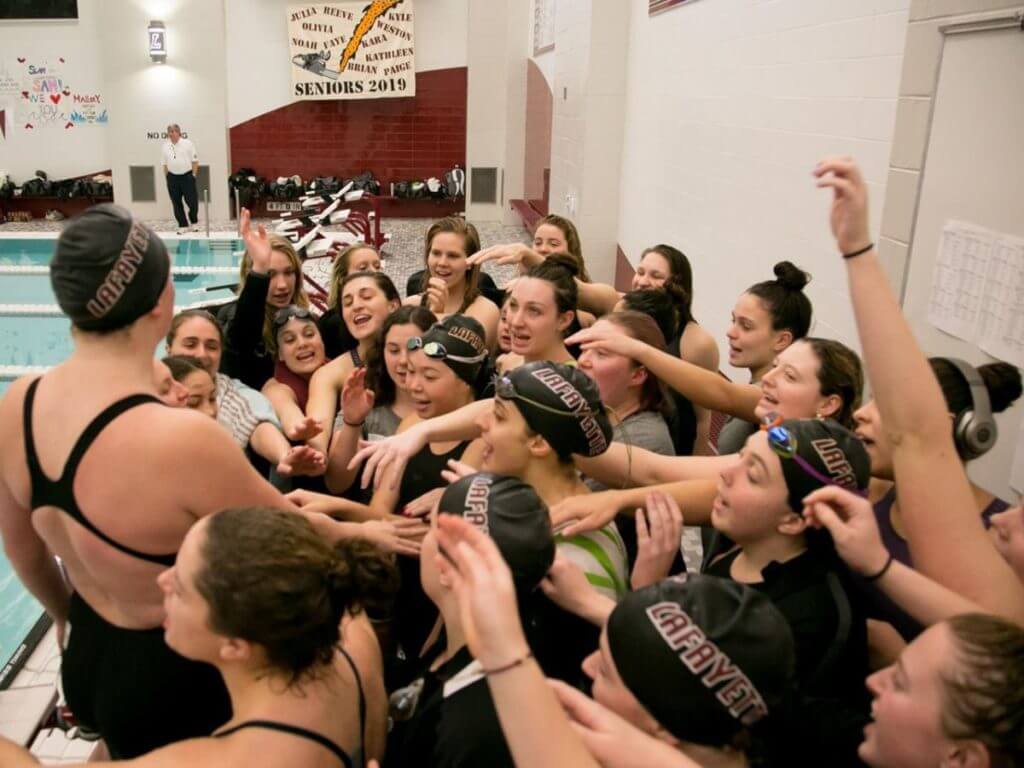Stepping Up: How Young Athletes Can Adapt to a Shifting Team Atmosphere

Stepping Up: How Young Athletes Can Adapt to a Shifting Team Atmosphere
It’s finally time. The team has made it to the end of a long, hard season and now they must say goodbye to the seniors, who will be graduating in the spring. Often, strong team leaders are part of the graduating class. Dealing with that loss of spunk and leadership ability can be difficult for the younger athletes. Many of them may feel as if it is impossible to “fill the shoes” of great role models.
And there is also the matter of the team dynamic, which is bound to change come next season.
“So much can change within a team’s dynamic simply by graduation that, at times, a complete re-calibration is needed,” coach Luke Modrak said.
Modrak believes that being honest and positive, while also tailoring one’s mind to see what a current group needs, is the ultimate success for an incoming leader.
Know the Team
In order to perform well together, young swimmers must know their teammates. This is most important for young leaders as well. Knowing the people around them is step one.
Swimmers can be some of the most supportive people. After all, swimming is a team sport, as well as an individual one. Even while swimmers are going after their own personal best times, they still take time to cheer for their teammates. So why shouldn’t aspiring leaders know the people around them?
“It’s not fun when expectations and goals are at two different levels,” Modrak said. “Sometimes, one has to bring it down a notch and work differently because that’s the best path for success. Other times, one has to rise up and really be pushed because there’s potential or there’s a need to be elevated. I think every team wants to be the elite team – there’s just a mindset shift needed on what kind of elite.”
A lot changes when top notch athletes graduate. The team’s purpose, goals, priorities, motivation… it can all change. Young leaders must know this and adapt to the shift in tone.
Last year, maybe several members of the team could have easily gone to their state championships. This year? Maybe not. But that’s okay! In order to be successful, swim teams must be able to tailor to the ability level of the team. And any member of the team can step up to become a leader. Leadership is not – in any way – connected to times.
Know What to Improve
“I’ve seen it too often before, especially with a previous team. The vast majority of this team were underclassmen who had bought into some culture change and had a unified goal, yet some remaining seniors were clinging onto a mindset of years past tied to some toxic behavior, evident by rather not great performances at high level meets,” Modrak said.
In order to avoid a situation like this, leaders on the team must be able to unify the people around them and steer the entire team toward a final goal. It may not be easy but it is worth it in the end. A unified team will be able to work together to establish solid relay teams, support each other, and create a welcoming atmosphere for those around them.
Team members can do this by reminding each other what lap of the set they’re on, cheering for each other during meets, and even holding 500 freestyle cards for each other. They should also remember to include younger (or newer) members of the team.
Team culture changes from year to year, and the older team members know what it’s like to be part of a team. By including younger swimmers, a new team culture is created. Sure, it may not be the same. But who’s to say that it can’t be just as special?
Know How to Be a Leader
Being honest is a key component in leadership, especially in the swimming world. So much in this sport depends on the ability of people to be honest with themselves about goals and the input of their coaches. Honesty can be an important thing to have when addressing the swim team as a whole.
Many young athletes will gravitate toward those who are trustworthy, while they will stay away from dishonest people. Honest leaders will attract more people to them, creating a positive and uplifting atmosphere. Leaders must also be able to unite and lift up other people. In order to step into the role of designated team leader, athletes have to have proper leadership skills. An unbalanced and unsupported team will always lead to disaster.
It’s scary to step out and rally the team. That is true. But it can be so rewarding in the end when those same people who were uplifted begin to lift others. Those freshmen who were cheered up after a “bad” race? Well, maybe one day they’ll remember that experience and in turn help to build up those around them. Never count anyone out, and always offer support!
Moving Forward
No teams are exactly the same. Even within the course of one year, many team dynamics and personalities can change. The most important thing to remember is that swimming should still be fun – and the team should be the most crucial part.
All commentaries are the opinion of the author and do not necessarily reflect the views of Swimming World Magazine nor its staff.




Yahoo Riley. Great article and great interview of your coach!
Ms. Dunn:
I have enjoyed reading your articles in this magazine. Each successive article shows the development of your level of maturity and the breadth of your understanding of how things work on a successful team. I can only imagine how you must be rising to a leadership role on your own team.
Good luck as your leadership skills grow and please do not stop writing. You have a real talent!